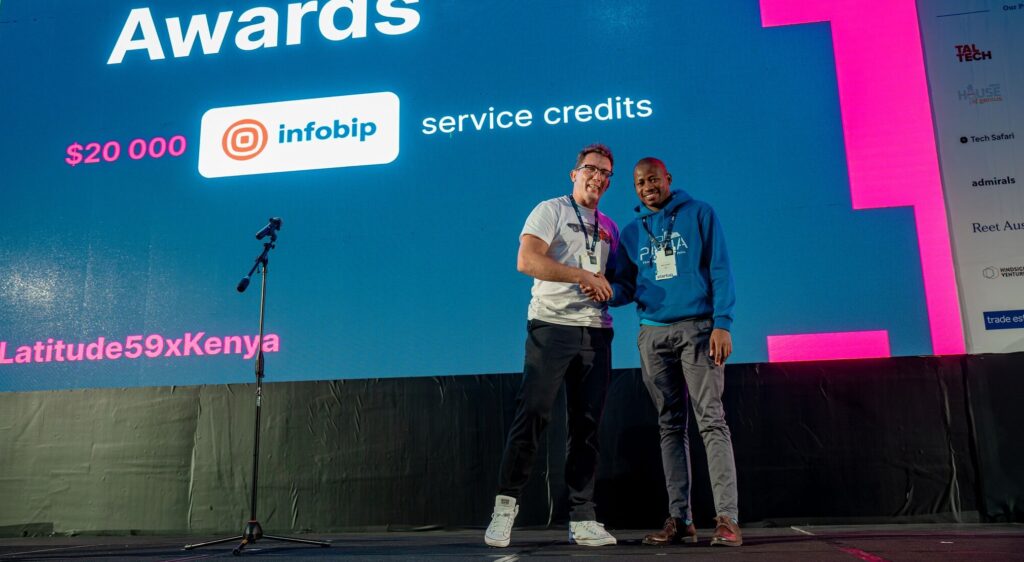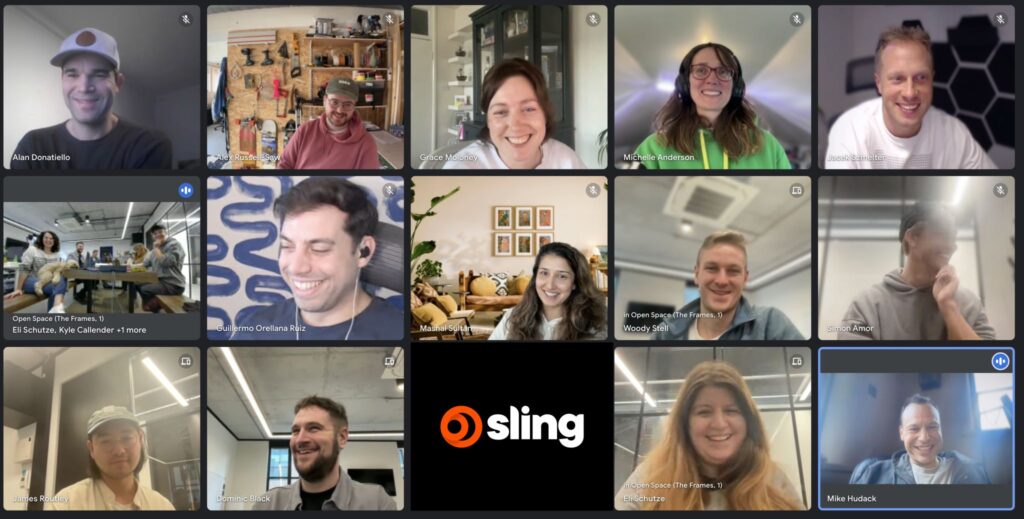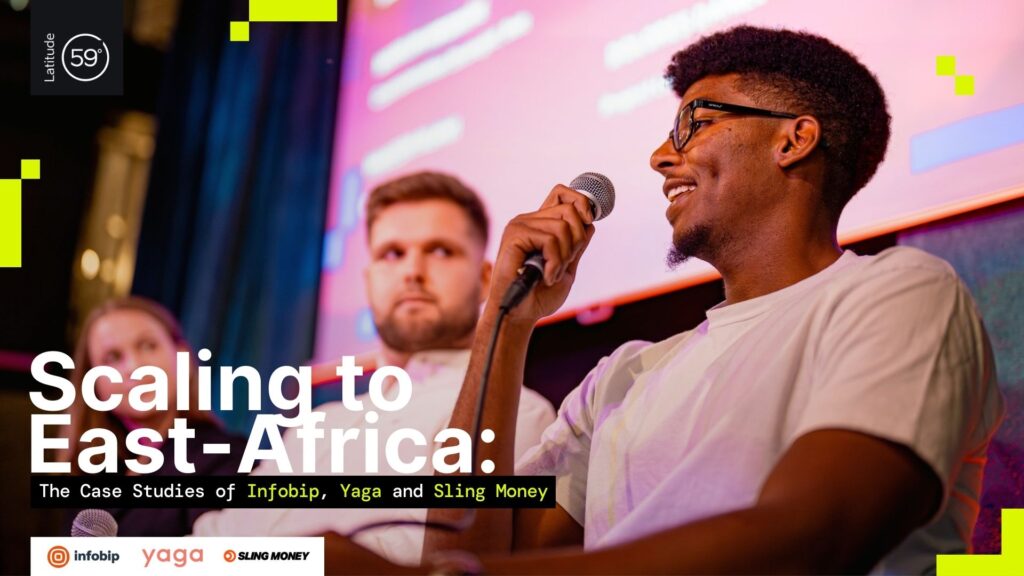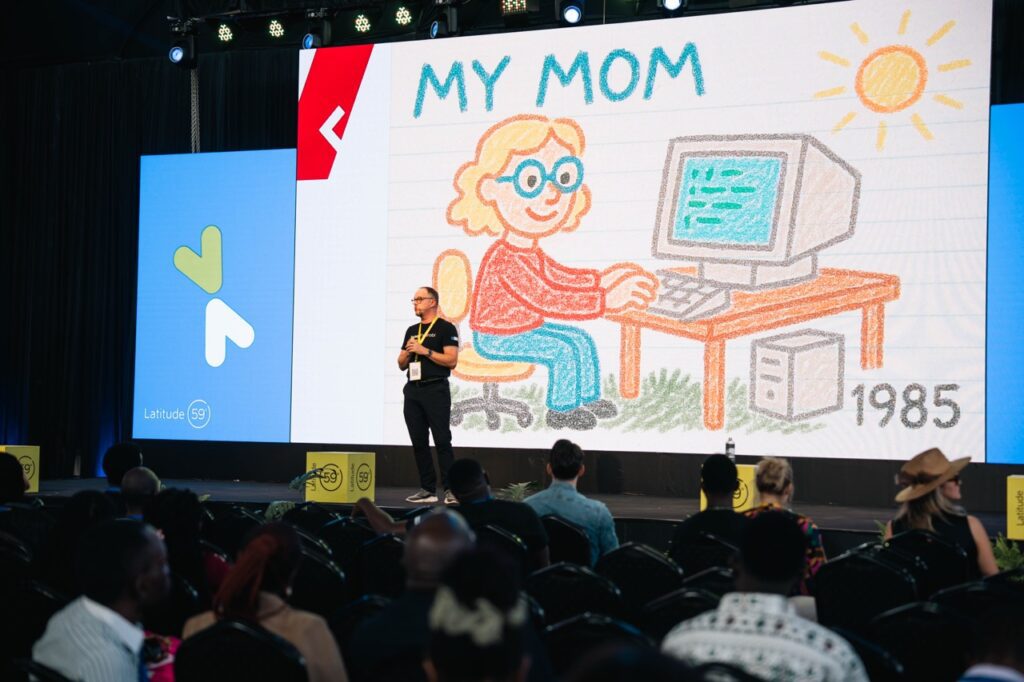Latitude59’s mission is to build a global village of startup ecosystems from all around the world. We connect communities to build an environment and network where founders can thrive. Latitude59 Kenya Edition 2024, taking place on November 28, unites the impact-driven people who share the mission – from startuppers and investors, to government representatives and ecosystem-activists.
One of the big focus points of this year’s event in Kenya is to help companies scale and tap into the huge potential of the the African continent. There are 54 countries in Africa and a population 1.4 billion people (with 2.5% annual population growth). Africa is rich in natural capital, rich in human capital (with 60% of the population under 25, the continent is young and ambitious), and tech-savvy. Kenya is the perfect place to start exploring the immense opportunities in Africa. It is called Silicon Savannah for a reason. For those who love numbers:
- The total investment in Kenyan startups reached $150 million in 2023, marking a 25% increase from the previous year.
- While fintech and agritech remain strong, sectors like healthtech, edtech, and renewable energy are rapidly gaining momentum.
- 60% of Kenyan startups have a clear social or environmental mission. Not only are these startups driving sustainability, but 35% of them also reported increased revenue due to their impact-driven approach.
East Africa is an exciting place to be! As the Latitude59 Kenya Edition 2024 is about to kick off, we interviewed 3 companies who have already made the leap and expanded to this exciting continent – Infobip, Yaga and Sling Money. We’ve also included a few tips from Trade Estonia who can help Estonian companies with gathering local intel and setting up an Afrcian branch for their business.

Infobip
About Infobip
Infobip’s mission is to connect the world through seamless and secure communication. We provide businesses with an omnichannel communication platform that enables them to engage with their customers across SMS, voice, email, WhatsApp, and more. By giving organizations the tools to communicate directly with their customers in real time, we’re enhancing customer experiences and driving digital transformation.
Our product is changing the world by making communication more accessible, scalable, and personalized, empowering businesses to create deeper, more meaningful relationships with their customers across the globe. Our users range from small startups to large enterprises across various industries, including e-commerce, banking, travel, healthcare, and retail. Infobip is widely used by marketing teams, customer service departments, and developers who need reliable, secure, and flexible communication solutions. In terms of geographic activity, our platform sees heavy use across regions like Europe, North America, Latin America, and increasingly in emerging markets such as Africa and Asia. In Africa, specifically, Kenya is a key hub of activity due to its growing digital economy and mobile-first population.
Infobip’s experience expanding to East-Africa:
- How has expanding to Kenya/East-Africa been different from landing in other parts of the world?
Expanding to Kenya and East Africa has been a unique challenge due to the region’s rapidly evolving tech landscape and mobile-first communication preferences. Unlike more mature markets, the East African market is highly reliant on mobile technologies, and mobile money services like M-Pesa play a crucial role in the region’s financial ecosystem. The speed at which the region is embracing mobile technology and digital transformation has meant that we needed to adapt our services to better integrate with mobile networks, mobile money platforms, and local regulatory frameworks. Local partnerships and understanding of mobile infrastructure have been key to our success here. Compared to more developed markets, the pace of adoption is faster, but also comes with challenges around connectivity, infrastructure, and digital literacy, which we work to address by providing tailored solutions. - What do you like the most about the startup and tech ecosystem in Kenya?
Kenya has one of the most vibrant and innovative tech ecosystems in Africa, often considered the Silicon Valley of East Africa. The startup community here is incredibly dynamic, with a deep focus on solving real-world problems through technology. This ecosystem is supported by a strong network of local and international investors, incubators, and accelerators, which creates a fertile ground for new ideas and solutions. What we particularly like is the collaborative spirit within the ecosystem. Startups are not just competing but are often working together to improve the local tech landscape. Nairobi, in particular, is a major hub for tech talent and innovation, where new solutions such as mobile payment systems, fintech applications, and e-commerce platforms are thriving. This environment fosters creativity and provides an ideal space for Infobip to grow its presence. - What have proven to be the biggest challenges in the local ecosystem (and what could be the potential fixes)?
Some of the biggest challenges in the local ecosystem include: Connectivity and Infrastructure: While mobile phone penetration is high, access to reliable internet and network coverage can be inconsistent in rural or remote areas. This presents challenges for digital businesses trying to reach all corners of the market. Regulatory Environment: While Kenya is a leader in tech innovation in Africa, regulatory policies around data privacy, mobile money integration, and fintech services can sometimes be complex. Startups and tech companies need to be agile and adapt to rapidly changing regulations. Digital Literacy: Despite high mobile adoption, there are still gaps in digital literacy. This can make it difficult for some businesses to take full advantage of digital tools and platforms. Potential Fixes: These challenges can be addressed through improved infrastructure investments, public-private partnerships, and initiatives to enhance digital literacy. Government regulations should also encourage innovation while providing clarity and certainty for businesses operating in this space.

Yaga
At Yaga, we’re building a sustainable future, one preloved item at a time. Our mission is simple yet profound: to make the fashion industry more sustainable while empowering individuals economically. We provide a secure, user-friendly platform that allows people to buy and sell preloved items, extending their lifespan and reducing waste. Every transaction on Yaga gives an item a new life, reduces the need for new production, and contributes to a greener planet. But our impact goes beyond sustainability – we’re building a community where economic empowerment and mindful consumption go hand in hand. In South Africa alone, our users have collectively earned over R600 million (approximately KSh 4.2 billion) by selling nearly 2 million items since our launch in 2020. With this success as our foundation, we’re thrilled to bring our model to Kenya, where we see immense potential for preloved fashion to transform the way people shop, earn, and live.
Yaga’s users are everyday people who value sustainability, affordability, and convenience. They range from young adults in their early 20s to mid-40s, with a significant overlap between buyers and sellers. These users are tech-savvy and community-minded, driven by the desire to save money, make money, or both. In South Africa, Yaga has become the go-to platform for preloved fashion, with close to 1,000,000 users and a strong presence in urban centres like Johannesburg and Cape Town. However, our reach extends far beyond major cities, with engagement from smaller towns and rural areas
proving that preloved fashion resonates across demographics. As we launch in Kenya, we aim to tap into the vibrant marketplace culture in Nairobi and beyond, connecting buyers and sellers while championing sustainable shopping practices.
PS. Yaga is at Latitude59xKenya this year to announce our official launch in Kenya and to share Yaga’s vision with the tech community. This is an exciting milestone, as they take the first steps into East Africa with the goal of becoming the leading platform for preloved fashion across the continent. If you’re a local brand looking to collaborate on sustainable initiatives, an investor interested in Africa’s booming tech and e-commerce markets, or simply someone passionate about building a greener future, reach out to Yaga’s team at the event!
Yaga’s experience expanding to East-Africa:
- How has operating in Africa been different from other locations?
Africa’s markets are as dynamic as they are diverse, requiring a localised approach to every aspect of our operations. In South Africa, we’ve seen incredible enthusiasm for preloved fashion, driven by economic factors and growing environmental awareness. The African market is unique in its blend of needs and wants – users are motivated both by the desire to save money and by a rising consciousness around sustainability.Interestingly, when it comes to user behavior – how people use the platform, how much they spend, and their overall engagement – there are more similarities to our European market than differences. Whether in Estonia or South Africa, users are drawn to Yaga for the same reasons: affordability, quality, and sustainability. The universal appeal of preloved fashion highlights a shared desire across continents to shop smarter and more sustainably.
However, one of the biggest mistakes startups make when entering African markets is failing to adapt and truly listen to users. It’s critical to build for the market rather than trying to make the market fit the product. At Yaga, we’ve prioritised localisation – integrating local payment systems like M-PESA in Kenya – but we’re also listening to our users every step of the way – to really build what for the market. By listening to and building for the people we serve, we’ve created a platform that resonates deeply across Africa while remaining true to our mission of sustainability and empowerment. This commitment to adaptation and understanding will guide us as we continue to grow in Kenya and beyond.
- What do you like most about the startup and tech ecosystem in Africa?
Africa’s startup and tech ecosystem is a powerhouse. What truly excites us is the immense potential of the market – Africa is home to an audience that is eager to adapt, experiment, and embrace innovation. From South Africa to Kenya, we’ve seen how quickly people adopt technology that genuinely solves their problems. This enthusiasm for new ideas creates an environment where startups can thrive and scale rapidly if they get it right (and if they listen to
their users!).Another standout of Africa’s ecosystem is the exceptional talent. At Yaga, we’ve been fortunate to hire some incredible individuals who bring deep local insights, innovative thinking, and so much drive and ownership. This talent pool will play a huge role in our future growth, and we’re committed to continuing to invest in and nurture local expertise. Events like Latitude59 are a testament to the value of connecting African innovators with global investors and collaborators. These platforms showcase the continent’s ingenuity while opening doors for partnerships that fuel growth and scale. We’re thrilled to be part of this ecosystem and look forward to contributing to its continued success.
What are the biggest challenges and what could be the potential fixes?
The biggest challenge isn’t demand – people value affordable, quality items. Rather, it’s that reselling isn’t widely practiced yet. Historically, the only way to sell preloved items has been through informal channels, which require significant time and effort. This has limited the behaviour, despite the clear potential. Once the idea of reselling becomes accessible and streamlined – where anyone can list items quickly and securely – growth becomes exponential. The audience pool is immense, as nearly everyone owns items they no longer need.
Yaga bridges this gap by making selling simple and safe, supported by our escrow payment system and user-friendly platform. As awareness grows and network effects take hold, preloved fashion shifts from occasional to everyday – a win for users and the planet alike.

Sling Money lets you send and receive money instantly, without fees, in any currency. Sling Money is a global payment app that simplifies peer-to-peer (P2P) money transfers, powered by blockchain. The key difference? Instead of dealing with complex wallet addresses, account numbers or IBANs, all you need is a recipient’s name. Whether you’re paying someone locally or across the world, Sling Money bridges the gap, making payments as easy as sending a text message.
We’ve always said our mission at Sling Money is to connect billions of people worldwide through effortless, instant payments using blockchain technology. We found this incredibly aligned with Latitude59’s mission of employing the tools, talent and know-how of startup and tech community to tackle the crises the world faces today. It’s 2024 and in some countries, people still have to either go into a physical location to send money or pay high fees and deal with long waits to move what is essentially just information around the world. Sling Money is trying to solve this real world problem using the latest innovations in tech.
Sling Money focused on launching 25 countries in Africa early because we believe in supporting dynamic, fast-growing communities where access to financial tools can have a profound impact on people’s lives. Partnering with Latitude59 in Kenya is about building connections—not only for individuals but for an entire ecosystem of entrepreneurs, creators, and dreamers. We’re excited to play a part in empowering global financial inclusion, where every transfer can strengthen bonds and create new opportunities.
We’re here at Latitude59 to connect with tech innovators, entrepreneurs, and ecosystem builders who are as passionate as we are about making financial access truly borderless. Also, truly those who would benefit from Sling Money, such as tech-working expats, global citizens, and individuals who frequently need to move money internationally. We’d love to get feedback on how we could make our product better. Also, to understand where attendees experience friction when it comes to moving money internationally. If you’re passionate about connecting people through technology and want to help create more financial opportunities, come find us.
Sling Money
About Sling Money
Our mission at Sling Money is to connect billions of people worldwide through effortless, instant, global payments using blockchain technology. Imagine sending money as fast as you can send a text, with no delays, no obstacles—just immediate connection. We’re making it possible for billions of people to connect financially across borders—instantly, securely, and at little to no cost. Our world is more connected than ever, and global financial transactions are now a part of everyday life. For anyone who has friends, family, or colleagues across borders, there needs to be a way to send money that’s fast, easy, and far more affordable.
But — the current state of international money transfer can be dramatically improved. High fees, long wait times, and confusing banking details can turn a simple transaction into a frustrating experience. In a world where you can share a photo with the tap of a button or message someone thousands of miles away, why should sending money feel like a slow and costly relic of the past? With Sling Money, sending money is transformed—it’s instant, effortless, and as natural as texting a friend.
By seamlessly merging fiat with blockchain, Sling Money is making it easier, faster, and cheaper to send money around the world, perfectly uncomplicated and aligned with our modern lives. Sling Money is built for everyone. Whether your sending money to a friend sitting next to you or family 3,000 miles away – it’s simple to use, instant to send with no fees. Sling Money is built for anyone who ever needs to move money from point A to point B.
Sling Money’s experience expanding to East-Africa:
- How has expanding to Kenya/ East-Africa been different from landing in other parts of the world?
Expanding into Kenya and East Africa has been a learning journey that’s shown us the importance of truly understanding local practices and perceptions around money. With the widespread use of Mobile Money in the region, we’ve approached this market by engaging deeply with the community to understand the unique challenges and financial needs people face. Instead of assuming, we’ve taken the time to listen—collaborating closely with local users to co-create solutions that align with their everyday realities. This isn’t just about launching a product; it’s about building something meaningful with input from those who will use it most, ensuring Sling Money is valuable and empowering for all. - What do you like the most about the startup and tech ecosystem in Kenya?
What stands out the most about Kenya’s tech ecosystem is the incredible drive for innovation and real-world impact. It’s a space where tech isn’t just about ideas but solving urgent, everyday problems—particularly in finance and connectivity. The community here is supportive, deeply collaborative, and curious with startups working together and with local talent to think creatively and build sustainable solutions. It’s inspiring to see such a strong focus on meaningful, user-centered tech, and it’s a privilege for Sling Money to be part of that ecosystem. - What have proven to be the biggest challenges in the local ecosystem (and what could be the potential fixes)?
Our main focus is on adapting Sling Money to the unique needs of East Africa’s vibrant financial landscape. Building a product that genuinely serves local users means understanding their specific needs and challenges, from how money is managed to the nuances of existing financial services. We’re committed to working closely with the community and local partners to ensure Sling Money is as reliable and user-friendly as possible.
Kenya is a fast-growing market with a vibrant startup scene – many have found the country to be the perfect location as their compant’s first landing-spot in Africa. If you’re looking to expand, here are a few tips from Joel Karubiu, Export Adviser in Kenya for Trade Estonia and Enterprise Estonia on how to excell with your expansion plans:
- Do intensive market research that allows you to understand the market better, there are numerous local market dynamics to take into consideration up to and including cultural nuances and attributes, and by this I mean a market with 42 tribes you are likely to find areas where certain things are done differently.
- Understanding the local regulatory landscape in areas of intellectual property, taxation and business set up procedures is key; in some cases this may take long and involve various stakeholders that could be discoursing during early stage and set ups.
- Tailor-make your products and services for the local environment – “think global, make local”. This allows for acceptability, scalability and flexibility. The key word is AGILE!
In summary, for a startup looking at the Kenyan market, be patient, be agile and be willing to invest. Partnerships and relationships make business. Trade Estoniacan help Estonian Startups by providing first-hand insights into the market place, who are the players, what’s the current economic environment for your innovative idea, offer a test bed and trail partner who can give you immediate feedback on possibilities and route to market, but best of all, find you suitable partners for success!
There is still time to join Latitude59 Kenya Edition 2024!
Grab tickets here to be inspired, learn from the experiences of those who’ve already scaled, and meet the teams of Yaga, Infobip, Sling Money and Trade Estonia!



